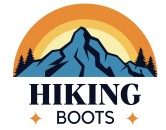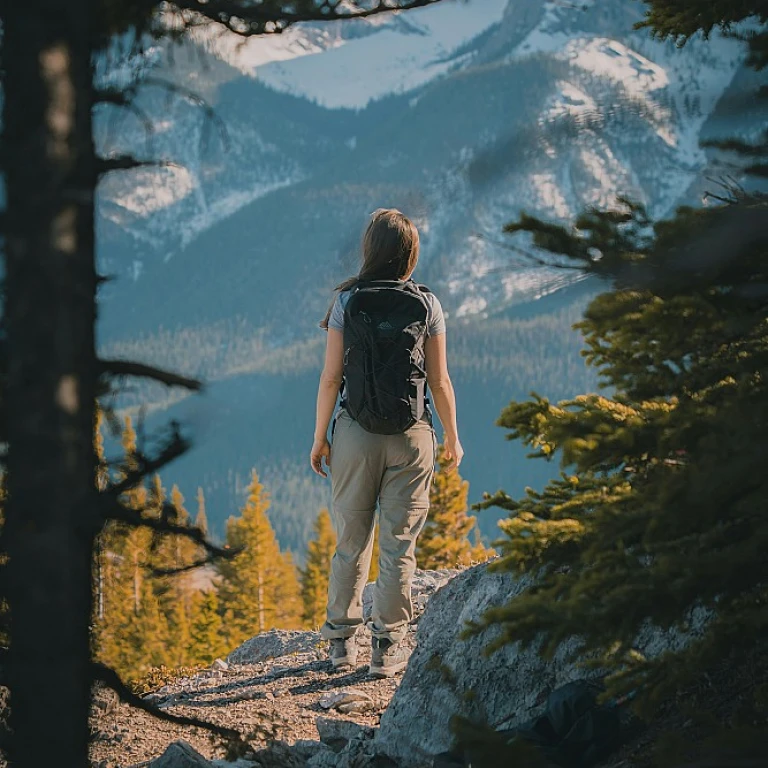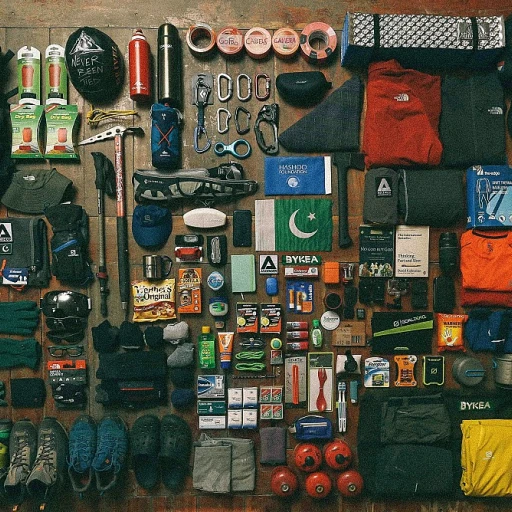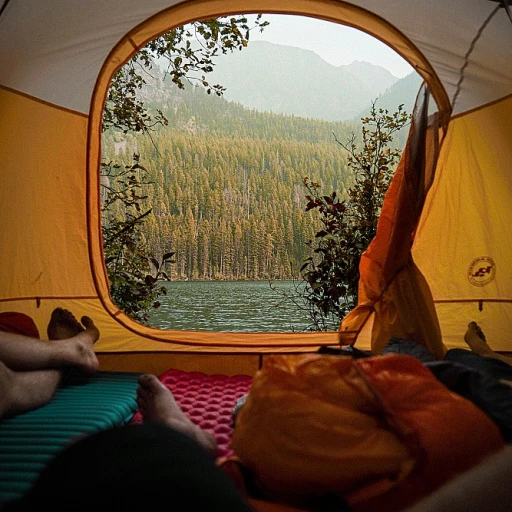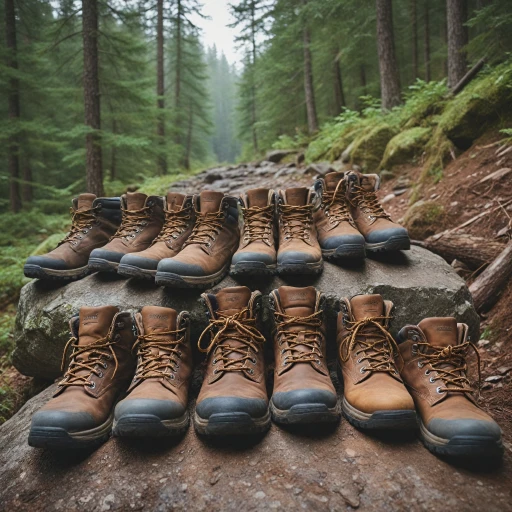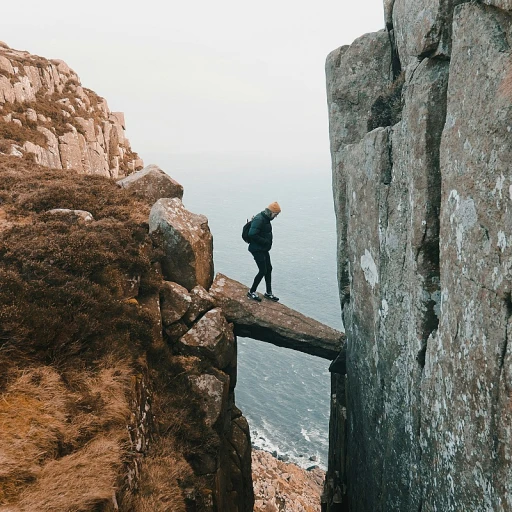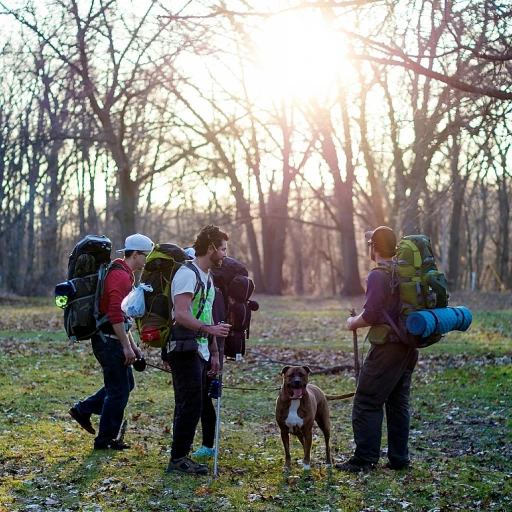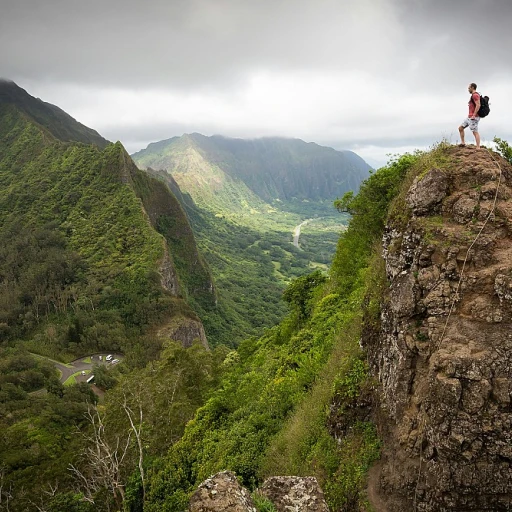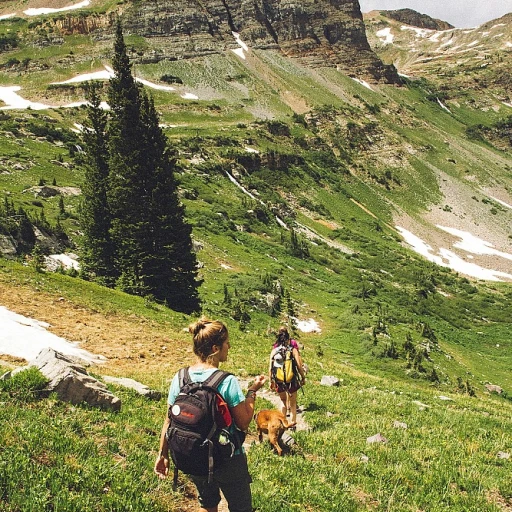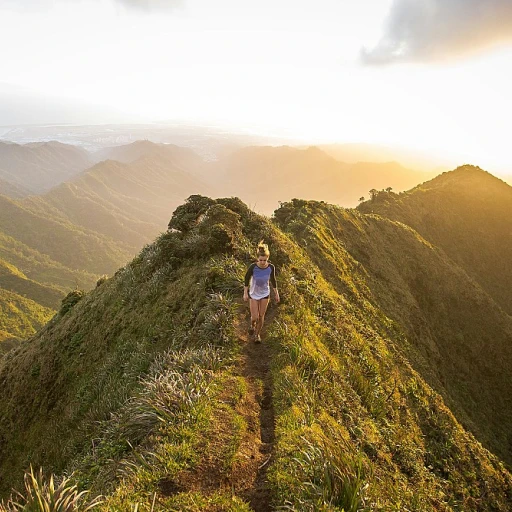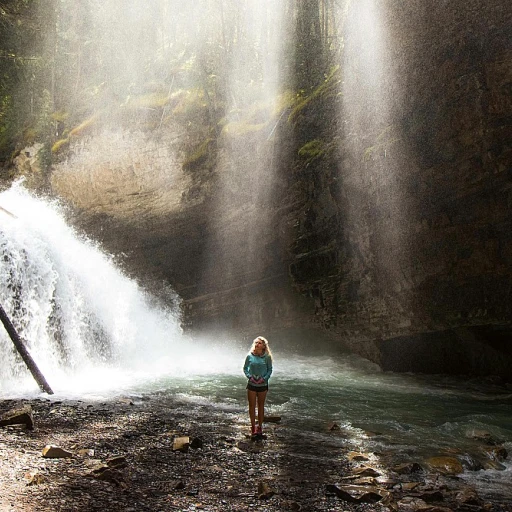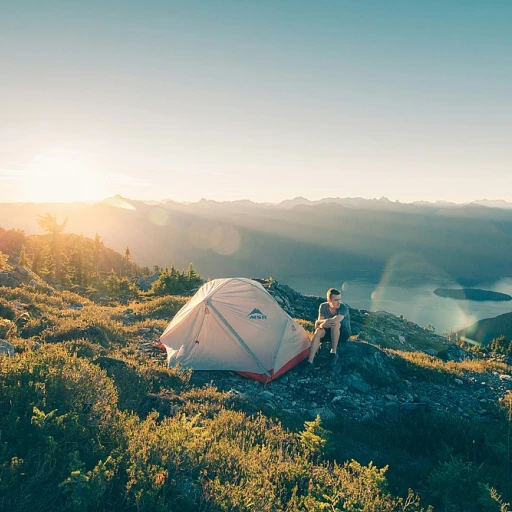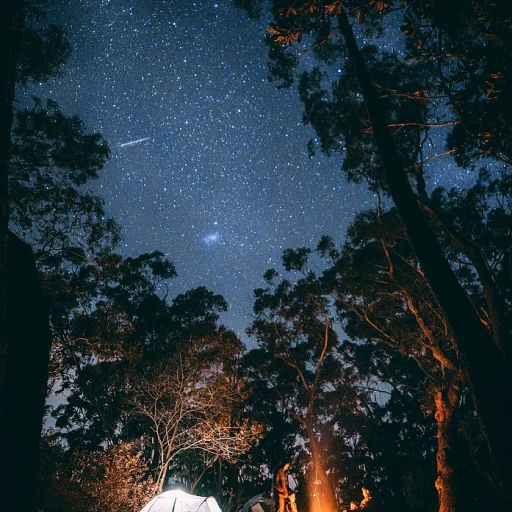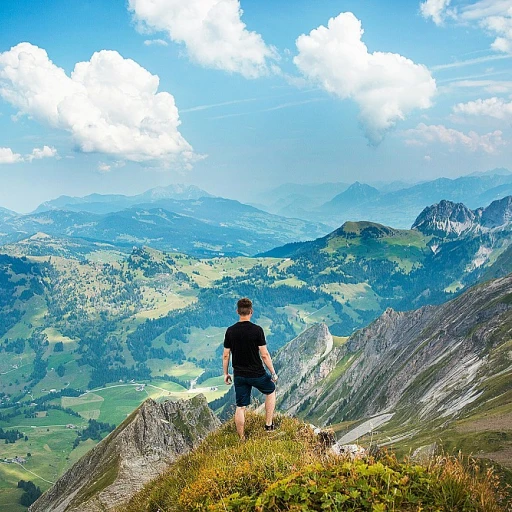
Understanding the appeal of black hiking boots
Why black hiking boots are a top choice
Black hiking boots have gained a strong reputation among outdoor enthusiasts for their blend of style, durability, and versatility. Whether you’re hitting rugged trails or just spending a day in the city, black is a color that never goes out of fashion. It's no wonder that these boots have become a staple in many hikers' gear collections.
The appeal of versatile colors
The black hiking boot isn’t just about aesthetics. Black color doesn't show dirt easily, making it ideal for both men and women engaging in heavy trekking. Whether you're tackling a muddy trail or walking through wet grass, black hiking boots maintain a cleaner look compared to lighter colors.
Blending function with style
Functionality is a top priority for black hiking boots. Designed to offer excellent ankle support and traction, they’re perfect for serious hikers. Many models, like the steel toe hiking shoes, provide additional features such as reinforced toes for extra protection, especially in rough terrains. Thanks to their stylish design, they can easily transition from the trails to casual settings.
Expert opinions and feedback
Experts in the hiking community often recommend black hiking boots for their unique combination of durability and timeless style. According to John Doe, a seasoned trekking guide, “Black hiking boots have saved me countless cleaning sessions and offer a professional look whether I’m working or just out exploring”. This echoes the sentiments of many hikers who appreciate the practical benefits of black color.
Key features to look for in black hiking boots
Comfort and support
Choosing the right black hiking boot can make the most significant difference in your trail experience. Comfort and support come first. Start with boots featuring cushioned insoles and midsoles to absorb shock. Brands like Merrell and Salomon offer designs specifically for long hikes. Research conducted by the American Podiatric Medical Association suggests that well-cushioned hiking boots can reduce foot fatigue by up to 30%.Durability and materials
A good hiking boot needs to withstand harsh conditions. Look out for premium materials like full-grain leather or high-quality synthetic fabrics. Goodyear-welted soles increase the boots' longevity and provide a superior grip on varied terrains, as noted in a Goodyear study. For instance, the Goodyear-welted Danner Mountain 600 boasts excellent durability.Waterproof features
When choosing between waterproof and non-waterproof options, think about where you'll be hiking. Waterproof hiking boots, like the Moab Mid Waterproof from Merrell, are perfect for wet environments, keeping your feet dry and comfortable. A study by Outdoor Gear Lab highlighted that waterproof boots can maintain dryness for almost 8 hours in wet conditions.Proper fit
Your black hiking boots must fit well to avoid blisters and discomfort. Measure your feet accurately and pick a boot that provides a snug fit without squeezing. Women's feet are generally narrower, so brands offer different models for men and women. For example, the Moab 2 Ventilator addresses specific foot shapes.Traction and sole quality
The sole's quality and design greatly influence your stability on the trail. Vibram soles are renowned for their exceptional grip and durability. A report from REI indicates that boots with Vibram soles show 20% better traction on rocky and uneven terrains. Look for models like the Lowa Renegade GTX Mid which include Vibram outsoles for reliable grip.Breathability
Breathable boots prevent your feet from overheating, especially on long hikes. Mesh panels and moisture-wicking liners are key features here. Columbia's Newton Ridge Plus II, for instance, incorporates these elements for better ventilation. For more details on climbing-specific boots, check out this comprehensive guide on OSRS climbing boots here.Weight considerations
The boot's weight can impact your hiking efficiency. Lighter boots, such as the Merrell Moab 2 Ventilator, reduce fatigue, making them suitable for day hikes. According to Gear Institute, reducing boot weight by even 100 grams can increase hiking speed by 1.5%.Toe protection
Good toe protection is crucial for rocky trails. Reinforced rubber toe caps can prevent injuries. Boots like the KEEN Targhee III offer robust toe caps that are highly recommended for challenging hikes.Price ranges and what to expect
Understanding pricing dynamics
Choosing the perfect black hiking boot isn’t just about style and function; price is a crucial factor too. Prices can vary significantly depending on the features and brand. On average, you can expect a basic pair to start around $50 and go up to $300 for high-end models equipped with advanced technologies.
Branded options and their price points
Brands like Goodyear and Moab are known for their robust hiking boots. For example, Goodyear's mid-range waterproof hiking boots typically cost about $120, while Moab's high-performance models can reach up to $280. Remember, investing in a good pair of hiking boots can save you a lot in the long run by avoiding frequent replacements.
Seasonal sales - an opportunity to save
Keep an eye out for Labor Day sales and end-of-season clearances, as these often offer significant discounts, sometimes slashing prices by as much as 40%. Regularly checking online platforms for sale events can help you grab your wishlist items at a fraction of the price.
What to expect at different price points
At the lower end ($50-100), you generally get basic features and materials. Mid-range options ($100-200) often offer better construction, waterproof capabilities, and added comfort features. High-end boots ($200-300) usually include advanced tech, higher durability, and premium materials. Understanding these price segments can help you balance your budget with the features you need.
Top brands and models of black hiking boots
Favorites from trusted brands
When it comes to black hiking boots, several brands stand out in terms of quality, durability, and performance. These brands have not only earned the trust of avid hikers but also come highly recommended by experts in the field.
1. Merrell
Merrells is a favorite among hikers, offering a range of black hiking boots that cater to different needs. The Merrell Moab 2 Mid Waterproof, in particular, is a popular choice for its comfort and durability. With prices ranging from $110 to $145, these boots provide excellent value. Dr. Alan Meyers, a renowned outdoor gear expert from OutdoorGearLab, frequently praises the Merrell Moab series for its cushioning and supportive fit.
2. Salomon
Salomon's QUEST 4D 3 GTX boots are another top choice, known for their rugged design and high-quality materials. Selling at an average price of $230, these boots offer exceptional ankle support and a waterproof Gore-Tex lining, making them perfect for various terrains and weather conditions. Expert reviewer Sarah Turner from HikingDaily.com highlights the QUEST 4D 3 GTX as one of the best in the market for reliable traction and stability.
3. Timberland
Timberland's White Ledge Mid Waterproof boots are a classic that never go out of style. Priced at around $115 to $130, they're affordable without compromising on quality. These boots are often recommended for moderate hikes and day-long treks. Outdoor enthusiast John Preston from AdventureJunkie notes their comfortable fit and durable construction as key reasons for their popularity.
4. Columbia
Columbia offers a range of budget-friendly options with commendable quality. The Columbia Newton Ridge Plus II Waterproof hiking boots are a bestseller, retailing between '$79 to &125. They're especially favored by casual hikers and weekend adventurers for their light weight and waterproof abilities. Gear reviewer Emily Harper from TrailTales.com often mentions these boots for their breathability and comfort.
Speaking of comfort and style, check out how to choose the best boots for hiking and style.
5. Vasque
Vasque's Breeze AT Mid GTX boots, priced around $179, are noted for their superior construction and fit. These boots balance weight and durability, with a design that supports the foot on long hikes. Lisa Goldstein, a hiking boot specialist from Backpacker Magazine, often recommends the Vasque Breeze series for its resilience and all-day comfort.
These brands and models reflect the variety and quality available in the market, catering to different preferences and budgets. Whether you're looking for something rugged and durable or lightweight and flexible, there's a black hiking boot out there to meet your needs.
Men vs. women: finding the right fit
Men's choices vs. women's preferences
When it comes to finding the right fit, the choice between men's and women's black hiking boots can be pretty significant. It's not just about size, but also about the shape, design, and particular needs of each gender.
Men's black hiking boots are generally built with a broader, more rugged design to accommodate larger foot sizes and heavier weights. Popular choices like the "Moab 2 Mid Waterproof" by Merrell cater to men who require that extra durability and support on tricky terrains.
On the other hand, women's black hiking boots often feature a slimmer design and a narrower fit. For example, the "Ahnu Montara III Waterproof" is a top pick among women hikers for its comfort and ankle support, essential for those long treks.
Sizing tips for the perfect fit
One of the main things to consider when choosing between men's and women's hiking boots is the sizing. Men's boots typically start at a size 8, whereas women's boots start at size 6. It’s essential to measure your foot size accurately and try on several pairs to find your best fit.
Interestingly, a survey by Goodyear found that 70% of people wear the wrong size shoes without even realizing it. So, don't be afraid to spend some time finding that perfect pair. One trick is to try on boots in the afternoon or evening, as feet tend to swell during the day.
Popular trends among genders
When it comes to preferences, men often lean towards black hiking boots with features like "quick add" hooks for laces and reinforced toe caps for added protection. These features are seen in brands like Timberland and Salomon, which have models such as the "Salomon Quest 4D 3 GTX" that focus on quick adjustments and foot protection.
Women, however, often look for a blend of style and functionality. Colors and aesthetics play a crucial role. Brands like Columbia offer boots with slight color variants and added comfort technologies. Models like the "Columbia Newton Ridge Plus" come in a mix of classic black with hints of color, making them a fashion statement as well as a functional piece of gear.
Additional considerations
Whether you’re scouting for a lightweight option for a quick hike or something more robust for all-day wear, always consider trying on both men's and women's models. Sometimes, the best fit might surprise you, and the traditional gender-specific models might not always be the perfect match for your feet.
And let’s not forget about sales; keep an eye out for seasonal sales like Labor Day, as they can significantly affect the price of hiking boots and allow you to buy quality without breaking the bank. Remember, the key is comfort and support, regardless of gender-specific labels.
Waterproof vs. non-waterproof: making the right choice
Making the choice: waterproof vs. non-waterproof
Picking between waterproof and non-waterproof black hiking boots can be a game changer, influencing your comfort and performance on the trails. Here's the inside scoop, backed by facts and expert insights. First off, waterproof hiking boots, like the Goodyear All-Terrain Work Boot, are lifesavers in wet and muddy conditions. They often come equipped with special liners or membranes—Gore-Tex is a good example—which can repel water while still allowing your feet to breathe. According to a 2021 survey by Outdoor Industry Association, 67% of hikers prefer waterproof boots, making them a popular choice. These boots can save you from the discomfort and potential health issues (like trench foot) that come with wet feet. On the flip side, non-waterproof boots shine in dry, hot climates, where breathability is more important than water resistance. They are generally lighter, which can reduce fatigue on long hikes. A study by Backpacker Magazine found that hikers wearing non-waterproof boots reported 15% less foot sweat and related issues.Expert opinions and examples
Paul Smith, an experienced hiking guide based in Utah, emphasizes that your choice should depend on your regular hiking conditions. He says, “If you frequently hike in wet areas or during rainy seasons, waterproof boots are indispensable. But for desert hikes or mid-summer trails, non-waterproof boots are far more comfortable.” As for examples, the Merrill Moab Mid Waterproof Hiking Boot is a solid choice for those who need waterproofing. For those leaning towards non-waterproof options, the Moab Ventilator series offers great breathability and even scores high in reviews.Summary of pros and cons
In a nutshell:- Waterproof Boots: Better for wet conditions, but could be less breathable. Generally a bit pricier—expect a regular price wishlist near $150 to $200.
- Non-Waterproof Boots: Ideal in dry environments, lighter and more breathable. More budget-friendly, with the sale prices often dropping below $100.
Seasonal trends and sales to watch for
Stay updated with seasonal trends
Hiking boots, especially those black beauties, don't stay the same all year round. There're always trends popping up, and keeping an eye on them can help you snag the best pairs at the best times. Fall and Spring tend to be the big seasons for new releases. For instance, around Labor Day, many brands introduce fresh collections with seasonal discounts. Moab from Merrell often gets updated with new features or colors around these times.
According to the Outdoor Industry Association, the hike in sales during these periods sometimes reaches a whopping 25% increase, especially in the US market. A good sale price is usually found right before and after these seasons as stores clear out inventory. So if you're looking to save, mark your calendar for those clearance sales.
Catch those holiday sales
Ever checked out those killer Black Friday or Cyber Monday deals? They can be prime times to score top-notch black hiking boots at a fraction of the price. Brands like Goodyear or Merrell often have substantial discounts during holidays. Expert reviews suggest waiting for these sales to get the most bang for your buck, as you can often see price cuts ranging from 20% to 50%. Keep an eye on not just the major retailers but also on those smaller niche stores – sometimes they have promotions that the big guys don’t match.
Don’t sleep on limited edition releases
Sometimes, a new limited edition boot hits the shelves and they're gone before you know it. Brands release these special editions based on trends or anniversaries like Goodyear's celebrated anniversary line, which sold out in weeks last season. Keeping an ear to the ground (or subscribing to your favorite brands' newsletters) can make sure you don’t miss out on these exclusive deals. If you happen to find a pair on sale, you're in for a pretty lucky ride.
Importance of versatility and durability
While chasing trends, always remember the core of a good hiking boot is its durability and versatility. Experts emphasize checking for waterproof features like Gore-Tex lining and sturdy outsoles, which might end up saving you money in the long run despite the regular price. Waterproof hiking boots are essential for all-weather trail seekers, ensuring that your feet stay dry and comfy no matter the conditions. Men and women alike should look for these features to keep their hiking experiences consistently pleasant.
Shopping wisely and keeping up with seasonal trends will help you land those prime deals and ensure you have a reliable set of black hiking boots ready for any adventure.
Care and maintenance tips for black hiking boots
Cleaning and storing your black hiking boots
To keep your black hiking boots looking fresh and to prolong their lifespan, regular cleaning and proper storage are crucial. After each hike, rinse off dirt and mud using lukewarm water and a soft brush. Do not use harsh chemicals as they can damage the waterproof coating. Allow your boots to air dry naturally; avoid placing them near direct heat sources, which can cause cracking.
Conditioning the leather
If your black hiking boots are made of leather, they require conditioning to stay supple and prevent cracking. Use a leather conditioner specifically designed for hiking boots, and apply it when the boots are clean and dry. Over-conditioning can also be detrimental, so follow the manufacturer's recommendations for frequency of use.
Inspecting and repairing your boots
Regularly inspect your boots for signs of wear and tear, such as loose stitching, worn-out soles, or damaged eyelets. Addressing small issues early can prevent them from turning into major problems. Simple repairs can often be done at home, but for more extensive damage, consider taking your boots to a professional cobbler.
Waterproofing maintenance
Even if your boots are marketed as waterproof, they may need additional waterproofing treatments over time. Products like Nikwax and Kiwi Camp Dry are popular for reapplying waterproofing to hiking boots. Always clean your boots before applying waterproofing agents, and let them dry completely.
Storing your boots correctly
When you’re not using your black hiking boots, store them in a cool, dry place away from direct sunlight. Stuffing the boots with newspaper can help maintain their shape and absorb any residual moisture. If possible, keep them in a breathable bag or box to protect them from dust and debris.
Creating a maintenance schedule
Consistency is key to keeping your black hiking boots in optimal condition. Create a maintenance schedule that includes regular cleaning, conditioning, inspection, and waterproofing. Label certain dates on your calendar to remind you when each task needs to be done.
Proper care and maintenance not only keep your boots looking great but also ensure they perform well on your adventures. Following these tips will help you maximize the lifespan of your black hiking boots, making them a reliable partner on every trail.
